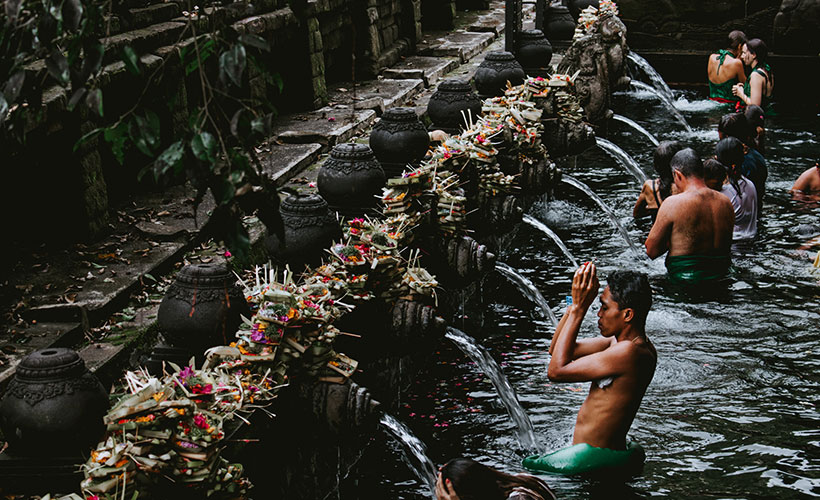
Beautiful beaches, spectacular hillside sceneries, a thriving local fashion scene, amazing food, nature trails, and a bustling nightlife are among just some of the things that make Bali, Indonesia such a great (and hugely popular) place to visit. The island also has a unique culture and many interesting religious sites to visit. When I first stepped off the plane in Denpasar, I immediately noticed that even the air smells like incense and prayers.
While the island is used to seeing massive amounts of tourists, there are some things you can do to ensure that you yourself are a good visitor. After all, Bali is still home to the locals, so here are some tips on how to be more respectful to the local culture:
Modesty is the best policy
Balinese people are conservative by nature. They dress modestly and refrain from public displays of affection. Swimsuits are fine on the beach and super touristy areas, but it’s recommended that you cover up when you move away from these spaces.

This is especially important when you visit temples or more rural areas. Generally, you need to cover your shoulders. You also need to cover your legs when you enter a temple. You can either wrap a kain kamben (sarong) around your legs or wear a selendang (scarf) around your waist. These are usually available for rent at temple entrances, but you can bring your own. Shoes should be left outside.
Some higher-end bars, restaurants, and clubs have dress codes, so it’s also recommended that you call or check before your arrival.
Point taken
It’s considered rude to point or gesture at someone with your index finger. Instead, use your entire hand (with palm facing up) if you want to indicate a place or person. You can also use your entire hand in a wave motion to beckon someone (this can be done with the palm facing down). You can also use your thumb to point at something specific.
The regions of South Asia and Southeast Asia are traditionalist spots; learning social norms will keep you from potentially upsetting the locals:
Cultural Etiquettes When Travelling Within South And Southeast Asia

The right hand is the… right hand
Balinese culture does not traditionally use toilet paper. The left hand is used for cleaning oneself after using the bathroom and is thus seen as dirty. It’s considered rude to shake someone’s hand or take something with your left hand, unless you need to use both hands to pass someone something. You should also not eat, make transactions (pass money), or pass a business card using your left hand. It’ll be seen as rude to do so.
Heads are off-limits
It’s believed that this is where one’s soul or spirit resides. Thus, it’s frowned upon to touch other people’s heads. This includes children.
Observe the sanctity of temples and religious practices
Temples are sacred spaces and need to be treated as such. Women should not enter temples while they are menstruating. Neither should anyone enter the temple if they have infected of bloody wounds.
When visiting temples, keep your head lower than that of the priest, avoid flash photography (and only take pictures once you have asked permission), and pointing your feet at the altar. Do not disturb or walk in-between worshipping Balinese and the deity they are facing.

Small baskets called Canang Sari, made from woven palm leaves containing flowers and herbs are on the ground placed around the island each morning as an offering to the divine. You’ll definitely see them outside your villa’s door; so be careful where you step and treat these parcels with the respect they deserve.
There are several religious festivals and processions in Bali each year. These are wonderful to see, as long as you ensure you are properly dressed and observe the local customs.
Bali is one of those must-visit places that is on many people’s bucket lists. And once you’ve been there, it’ll be one of those places you’ll want to return to again and again. It’s easy to forget that this idyllic island has deep-rooted religious and cultural traditions, so do keep the above in mind on your next visit.



